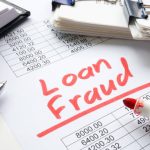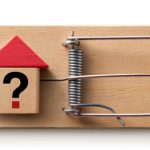The Crucial Role of Mortgage Loan Fraud Audits in Safeguarding Your Financial Interests
Mortgage loan fraud continues to be a persistent issue in the financial landscape, with consequences that can be far-reaching for homeowners, lenders, and investors alike. This type of fraud, which can take many forms, from falsified documents to misrepresentation of income and assets, poses a significant threat to the integrity of the housing market. As the financial world evolves, so do the tactics employed by fraudsters, making it even more important for lenders, financial institutions, and homeowners to adopt a proactive approach to identify and prevent mortgage loan fraud.
Mortgage loan fraud audits are one of the most effective methods of detecting fraudulent activities before they cause irreversible damage. These audits focus on reviewing loan documentation, analyzing credit reports, and verifying borrower information, ultimately providing a comprehensive evaluation of a mortgage loan’s authenticity. In this blog, we will explore the essential role of mortgage loan fraud audits, how they help prevent financial losses, and the importance of incorporating securitization loan audits, which act as fraud stoppers in modern financial practices.
Understanding Mortgage Loan Fraud and Its Implications
Mortgage loan fraud is a broad term that encompasses various fraudulent activities related to the mortgage loan process. These activities typically involve intentional misrepresentation or omission of critical information to obtain a loan under false pretenses. There are two primary categories of mortgage fraud: fraud for profit and fraud for housing.
Fraud for profit involves a person or group seeking financial gain by engaging in fraudulent practices. These practices can include inflating property values, creating fake borrower information, or falsifying income statements. On the other hand, fraud for housing refers to individuals who misrepresent their financial situation to qualify for a mortgage loan that they would not otherwise be able to obtain.
Regardless of the category, the consequences of mortgage loan fraud can be severe. Financial institutions can lose significant amounts of money due to unpaid loans, while homeowners may face foreclosure or long-term financial instability. The implications extend beyond individual cases, as widespread mortgage fraud can destabilize the housing market, leading to a loss of investor confidence and contributing to financial crises.
Mortgage loan fraud audits provide a vital layer of protection against such fraudulent activities. By conducting an in-depth review of loan documents and borrower information, these audits help identify inconsistencies, errors, and potential signs of fraud that could otherwise go unnoticed.
The Power of Mortgage Loan Fraud Audits in Detecting Fraud
The first and most obvious benefit of mortgage loan fraud audits is their ability to identify fraudulent activity before it becomes a problem. Mortgage loan fraud audits involve a comprehensive examination of various documents involved in the mortgage process, including loan applications, income verification documents, tax returns, and credit reports.
One of the key areas that mortgage loan fraud audits focus on is the accuracy of the borrower’s information. Fraudsters often provide falsified details regarding their income, employment, or assets to qualify for a loan that they otherwise would not be able to obtain. A fraud audit can quickly flag discrepancies in the borrower’s financial statements, such as exaggerated income or misrepresented employment history.
Another critical aspect of the audit process is verifying the authenticity of property appraisals. Inflated property values are a common tactic used by fraudsters to secure larger loans than they are entitled to. A fraud audit will evaluate the property’s market value and ensure that it aligns with comparable properties in the area.
By conducting these detailed assessments, mortgage loan fraud audits act as a critical deterrent against fraudulent activities. These audits ensure that mortgage loans are based on truthful and accurate information, reducing the risk of lenders facing financial losses due to fraudulent borrowers. Moreover, these audits protect homeowners from being placed in financial jeopardy through predatory lending practices that could ultimately lead to foreclosure.
Incorporating Securitization Loan Audits for Enhanced Fraud Prevention
In addition to traditional mortgage loan fraud audits, another essential tool in the fight against fraud is the securitization loan audit. Securitization is the process of bundling individual mortgage loans into mortgage-backed securities (MBS) that can be sold to investors. While securitization allows lenders to generate capital and reduce risk, it also creates opportunities for fraud to go undetected.
Securitization loan audits are designed to analyze mortgage loans that have been bundled into securities to identify any potential fraudulent activities in the underlying loan documents. These audits are particularly valuable because they focus on loans that have already been packaged and sold to investors. By examining the underlying mortgage loans, securitization audits can uncover instances of misrepresentation, forged documents, or other forms of fraud that may have occurred during the loan origination process.
Securitization loan audits help uncover discrepancies in the loan documentation that may have been overlooked during the initial loan process. This is especially important because the financial institutions and investors who purchase MBS rely on the accuracy of the underlying loan data to assess risk and determine the value of the securities. If fraudulent loans are included in these securities, it can lead to significant losses for investors and contribute to broader financial instability.
Fraud stoppers, such as securitization loan audits, play a crucial role in mitigating these risks. These audits not only help identify fraud in the initial stages but also provide investors with the confidence that the MBS they are purchasing is based on legitimate, accurately documented loans.
Fraud Stoppers: How Securitization Audits Protect Investors and Homeowners
The financial crisis of 2008 highlighted the dangers of securitization in the mortgage industry, as many investors purchased MBS that were backed by fraudulent loans. To prevent similar occurrences, modern fraud stoppers, such as securitization loan audits, provide a safeguard against the risks associated with mortgage-backed securities.
For investors, securitization loan audits offer peace of mind by ensuring that the loans they are investing in are based on accurate and legitimate borrower information. These audits identify any signs of fraud or misrepresentation in the underlying loans, which allows investors to make informed decisions about the securities they purchase.
For homeowners, securitization loan audits serve as an essential tool for ensuring that their mortgages are legitimate and free from fraud. Homeowners who are facing financial difficulties due to fraudulent loans may benefit from securitization audits, which can help identify issues in the mortgage origination process that could lead to loan modifications or other corrective measures.
In cases where fraud has been identified, securitization loan audits provide a roadmap for addressing the issue. For example, if a borrower is found to have falsified income information, the audit can help determine whether the loan should be rescinded or if other remedies, such as loan modification or repayment restructuring, are appropriate.
By incorporating securitization audits into the fraud detection process, financial institutions can better protect themselves from the risks associated with fraudulent loans, while also offering greater protection to homeowners who may be at risk of foreclosure due to fraudulent practices.
The Growing Importance of Mortgage Loan Fraud Audits in the Modern Financial Landscape
As the mortgage industry continues to evolve, so do the methods used by fraudsters to exploit weaknesses in the system. The rise of digital mortgage applications, automated underwriting systems, and other technological advancements has made it easier for fraudsters to manipulate data and gain access to loans under false pretenses.
Mortgage loan fraud audits have become more critical than ever in this new landscape. With the ability to detect fraud across a wide range of loan documentation, fraud audits help ensure that mortgage loans are based on truthful and accurate information. These audits not only protect lenders from financial losses but also help maintain the integrity of the housing market and safeguard the interests of homeowners.
In addition to preventing fraud, mortgage loan fraud audits also offer a layer of compliance protection for financial institutions. Regulatory bodies require lenders to maintain strict compliance with loan origination and underwriting standards, and failure to do so can result in costly penalties. Mortgage loan fraud audits help institutions stay compliant with these regulations by ensuring that loan documentation is accurate and in line with legal requirements.
As the industry faces increasing pressure to address fraud and maintain transparency, mortgage loan fraud audits will continue to play a crucial role in maintaining the stability of the mortgage market. Lenders, investors, and homeowners must remain vigilant and proactive in identifying and preventing fraud through audits and other preventive measures.
Conclusion:
In conclusion, mortgage loan fraud audits serve as an essential tool for protecting the integrity of the mortgage industry and safeguarding financial interests. By identifying and preventing fraudulent activities, these audits help lenders avoid significant financial losses, protect homeowners from predatory lending practices, and maintain the stability of the housing market.
Securitization loan audits further enhance fraud prevention by providing an additional layer of protection for investors and homeowners. By thoroughly analyzing the underlying loans in mortgage-backed securities, securitization audits help identify fraud that may have gone unnoticed during the initial loan process, ultimately preventing financial losses and offering greater transparency in the market.
As the mortgage industry continues to evolve, the importance of mortgage loan fraud audits and securitization loan audits cannot be overstated. These audits offer an essential safeguard against fraudulent activities, and financial institutions, investors, and homeowners must remain proactive in utilizing these tools to protect their interests.
Contact us today at (877)-399-2995 or visit Mortgage Audits Online to learn more about how mortgage loan fraud audits and securitization loan audits can protect your financial future. Secure your financial future with confidence!




